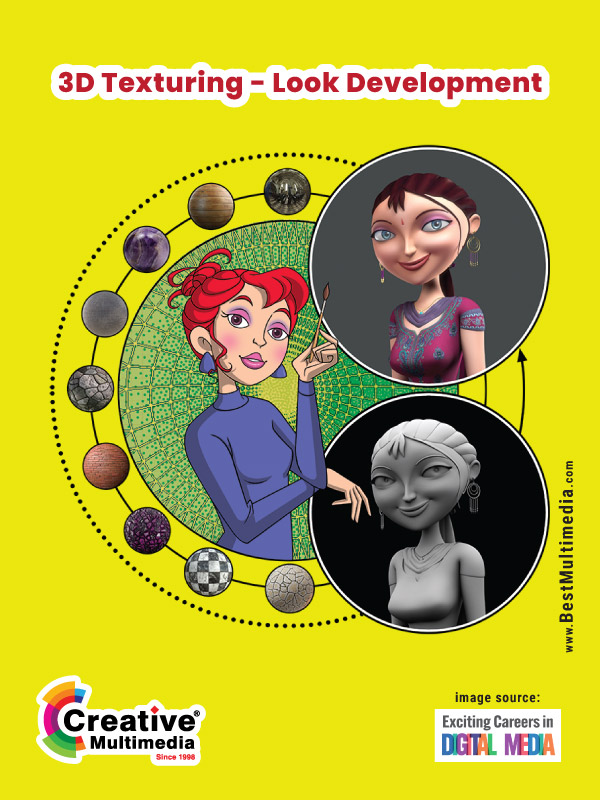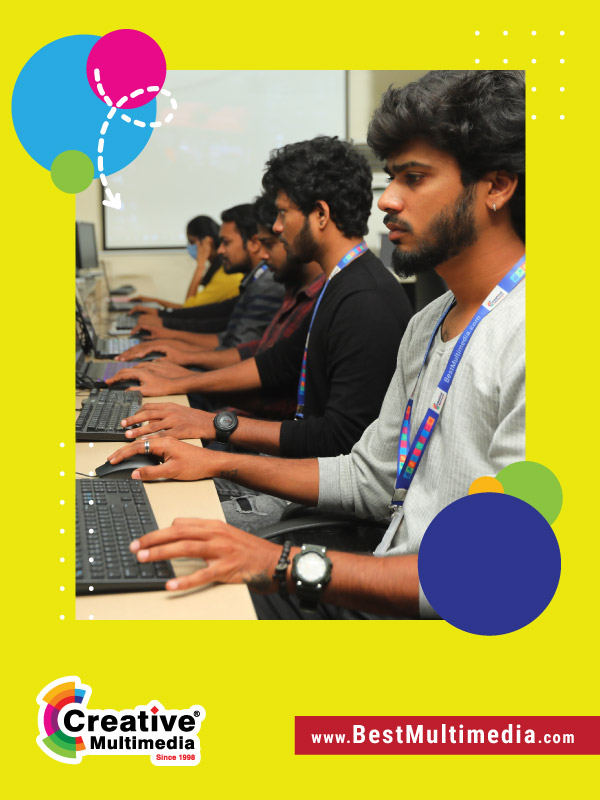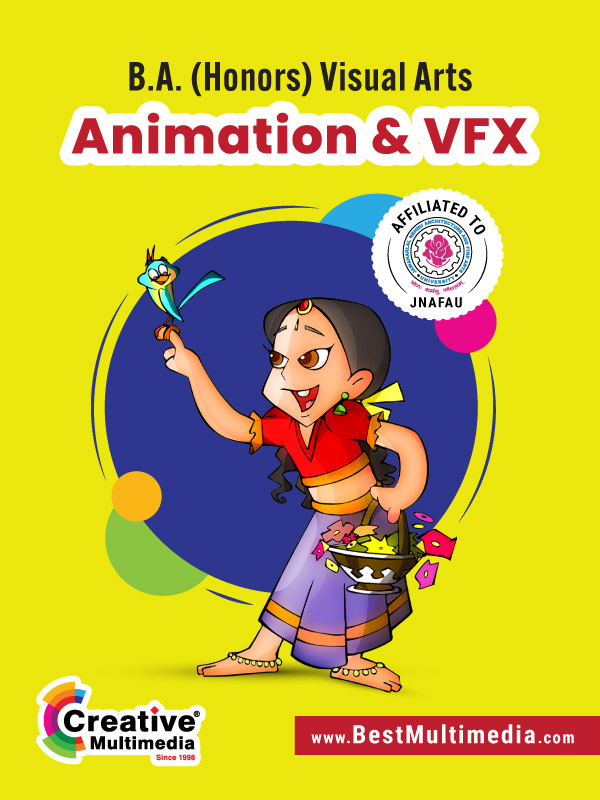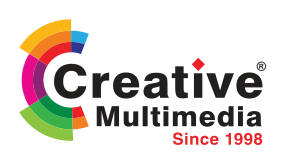What is 3D Texturing – Look Development?
What is the career potential of texturing/look development and where are the best institutes for animation in India?

3D Texturing – Look Development plays a key role in the 3D animation pipeline/process and is done by Look Development/Texturing Artists who typically undergo a structured, 1 to 4 years animation course. The animation course time period depends on the selected course which could either be a long term course or a short term course.
There are many animation centers in Hyderabad, Bengaluru, Mumbai, Kolkata, Delhi, and other cities in India. The best city to learn animation is Hyderabad which is home to the best animation colleges in India.
Now, moving on to the craft of look development, Look Development Artists help shape the visual appearance of computer-generated creatures and objects/props. They are responsible for crafting and applying realistic or appropriate surface textures onto characters, environments, and props in 3D animated films and video games. Utilizing a variety of software tools and techniques, they collaborate with concept artists, lighting artists, and other 3D professionals to bring the artistic vision of the project to life. Typically employed in animation studios, film and television companies, advertising agencies, and gaming companies, 3D texturing artists operate in a highly creative, challenging, and competitive environment. Meeting tight project deadlines may occasionally require working beyond standard office hours.
Key qualifications for a Look Development/Texturing Artist include: proficiency in traditional sketching and familiarity with 3D software; strong grasp of art fundamentals, including composition, proportion, lighting, and color; ability to comprehend the material and behaviour of objects; excellent observational, communication, and interpersonal skills; artistic mindset with an aesthetic sense and traditional painting skills; research and problem-solving capabilities; prioritization, multitasking, and deadline-oriented approach; and formal qualification in animation, 3D modeling, or a related field.

When it comes to job skills, recruiters expect candidates to have a diploma or bachelor’s degree in animation, fine arts, visual arts, drawing, painting, or related fields. Proficiency in software tools such as Photoshop, Maya, Houdini, UV Layout, Unfold 3D, Zbrush, Substance 3D Painter, Substance 3D Designer, or Foundry Mari is crucial. Practical exposure, gained through internships or apprenticeships in CG studios is highly valued.

Acquiring a job is easy and comes with some basic requirements. A compelling portfolio showcasing one’s best works is essential. Entry-level opportunities may be available for talented texturing artists with a passion for the craft, even without extensive formal training. Tailoring the resume to highlight education, core skills, and internship experience, along with a customized cover letter, strengthens one’s candidacy for specific positions.
Career Progression: In the 3D animation production pipeline, texturing artists follow this typical career path: > Junior Texturing Artist > Mid-level Texturing Artist > Senior Texturing Artist > Lead Texturing Artist > Supervisor and finally…..> Head of Department (HOD). As highly valued professionals in the animation industry, 3D texturing artists enjoy significant opportunities for career advancement.
